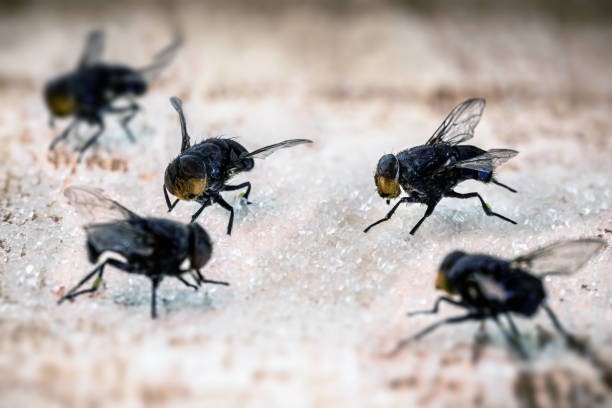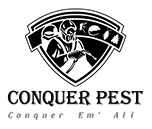Flies are more than just a nuisance; they can pose significant health risks to both homes and businesses in Singapore. The tropical climate, high humidity, and dense population make it an ideal environment for flies to thrive. From spreading diseases to contaminating food, these pests can create a range of problems. Therefore, implementing effective fly pest control solutions is crucial for maintaining a clean and healthy environment. In this blog, we’ll explore the various types of flies found in Singapore, the dangers they pose, and the most effective pest control methods for keeping them at bay.
Common Types of Flies in Singapore
Before diving into fly control solutions, it’s essential to understand the types of flies that commonly invade homes and businesses in Singapore. Different species of flies have different behaviors, and identifying them correctly can help in choosing the most effective control methods.
1. Houseflies
Houseflies are the most common species found in both residential and commercial settings. They are attracted to decaying organic matter, such as food waste and garbage. These pests can spread harmful bacteria, including E. coli and Salmonella, by contaminating food and surfaces.
2. Fruit Flies
Fruit flies are attracted to ripened or fermenting fruits and vegetables. They are common in kitchens, restaurants, and supermarkets where fresh produce is stored. While they don’t pose the same health risks as houseflies, their presence can be unsettling, and they can contaminate food with bacteria.
3. Blow Flies
Blow flies are larger than houseflies and are known for their metallic appearance. They are often found around decaying meat or animal carcasses. While less common in homes, blow flies can still invade businesses like restaurants, butcher shops, and food processing plants.
4. Drain Flies
Drain flies thrive in moist environments and are often found near sinks, drains, and sewage systems. They are particularly common in areas with poor sanitation and can indicate an underlying plumbing or drainage issue.
Why Fly Control Is Important
Flies may seem like a minor inconvenience, but their impact on health and hygiene should not be underestimated. They are known vectors of various diseases, including food poisoning, dysentery, and cholera. Flies can easily transfer bacteria and pathogens from contaminated surfaces to food and kitchen utensils. This can result in serious health hazards, especially for businesses in the food industry, such as restaurants, cafes, and food processing plants.
For homes, flies can be a source of frustration and discomfort, especially when they multiply quickly during the warmer months. Without proper control measures, their presence can lead to food contamination, unpleasant odors, and an overall unsanitary environment.
In business settings, particularly those involving food handling or healthcare, a fly infestation can lead to regulatory penalties, a loss of reputation, and even temporary closures. Implementing an effective fly control strategy is not just about maintaining comfort; it’s about protecting health, ensuring compliance with hygiene regulations, and safeguarding your business reputation.
Preventive Measures for Fly Control
The best way to tackle a fly infestation is through preventive measures. By making your home or business less attractive to flies, you can significantly reduce the likelihood of an infestation. Below are some key steps you can take to prevent flies from becoming a problem.
1. Proper Waste Management
Flies are naturally drawn to decaying organic material, especially food waste. Ensure that garbage bins are tightly sealed, and waste is regularly disposed of. In businesses, particularly in the food and hospitality industries, frequent garbage collection and sanitation of waste areas are essential.
2. Maintain Cleanliness
Cleanliness is the foundation of effective fly control. Regularly clean and disinfect surfaces, especially in areas where food is prepared and consumed. For businesses, it’s important to maintain high standards of hygiene in kitchens, dining areas, and food storage rooms to prevent attracting flies.
3. Repair Plumbing Issues
Since some species, like drain flies, thrive in moist environments, fixing plumbing leaks or drainage problems can help eliminate potential breeding grounds. Ensure that drains are kept clean and free of debris that could encourage fly infestations.
4. Seal Entry Points
Flies can easily enter buildings through open doors, windows, and small cracks. Installing fly screens on windows and doors and sealing any gaps or cracks around the building can help keep flies out. Businesses should also ensure that loading areas and kitchen doors are kept closed or have fly control systems in place.
Fly Control Methods for Homes and Businesses
When preventive measures are not enough, it’s important to have an effective fly control solution in place. Below are some methods that have proven to be effective in managing and eliminating fly infestations in Singaporean homes and businesses.
1. Insecticides and Fly Sprays
Insecticides are one of the most common methods of controlling flies. For homes, over-the-counter fly sprays can provide temporary relief from small fly infestations. However, these should be used with caution, particularly around food preparation areas, as they contain chemicals that can be harmful if ingested.
For businesses, particularly those in the food industry, professional-grade insecticides are often more effective. These are typically applied by pest control experts and are designed to eliminate large-scale fly infestations. It’s important to choose insecticides that are safe for use in food-handling environments to avoid contamination.
2. Fly Traps
Fly traps are a non-toxic solution that can help control fly populations. There are various types of fly traps available, including sticky traps, electric fly killers, and bait traps. Sticky traps are ideal for indoor use in homes and businesses, as they capture flies without the use of chemicals.
Electric fly killers use ultraviolet light to attract flies and then eliminate them with an electric shock. These devices are particularly effective in commercial settings where large numbers of flies need to be controlled. However, they should be placed away from food preparation areas to prevent contamination.
3. Biological Control
Biological control involves using natural predators of flies to reduce their populations. This method is more commonly used in agricultural or outdoor settings but can also be applied in urban areas. Certain species of parasitic wasps are known to target and eliminate fly larvae, preventing them from reaching adulthood. While not as widely used as chemical methods, biological control can be an environmentally friendly option for managing fly populations.
4. Professional Pest Control Services
For severe infestations or businesses that require consistent pest management, professional pest control services are the most effective solution. Companies that specialize in pest control will conduct a thorough inspection of the premises, identify the type of fly infestation, and recommend a tailored treatment plan.
In Singapore, pest control services often use Integrated Pest Management (IPM) strategies, which combine various control methods to achieve long-term results. These strategies may include a combination of chemical treatments, fly traps, and preventive measures, ensuring that the fly problem is resolved and future infestations are prevented.
Maintaining Long-Term Fly Control
Once the immediate fly infestation has been dealt with, it’s crucial to implement long-term strategies to keep flies at bay. Regular cleaning, waste management, and fly-proofing measures should be a part of routine maintenance for both homes and businesses. In addition, scheduling regular pest inspections can help identify and address potential fly breeding grounds before they become a problem.
For businesses, particularly those in the food industry, staying compliant with local health regulations is vital. Regular pest control assessments and adherence to hygiene standards will not only keep your business fly-free but also protect your reputation and ensure customer satisfaction.
Final Thoughts: Fly Pest Control Solutions for Singapore
Flies are not just an inconvenience; they can pose serious health risks and lead to significant problems if left unchecked. Whether you’re a homeowner dealing with a minor fly issue or a business trying to prevent a large-scale infestation, effective fly control is essential for maintaining a clean and healthy environment.
By implementing preventive measures, using appropriate fly control methods, and working with a professional pest control service, you can ensure your home or business remains fly-free. For reliable and effective pest control solutions, visit us at Conquer Pest Management Singapore.


